|
Famous podcaster Joe Rogan has raised concerns about artificial intelligence after a highly realistic, AI-generated version of his famous podcast, 'The Joe Rogan Experience,' appeared online. The fabricated episode, created with the help of AI chatbot ChatGPT, was published on YouTube on April 4 and features a conversation between Joe Rogan and Sam Altman, CEO of OpenAI, with a disclaimer that the ideas and opinions expressed are not indicative of their genuine thoughts.
The AI-generated Joe Rogan states, "Let me tell you folks, this is some next-level stuff we've got going on here today. Every single word of this podcast has been generated with the help of ChatGPT... I am not the real Joe Rogan… this is purely fiction." Following the release of this imitation podcast, the real Joe Rogan expressed his unease, tweeting, "This is going to get very slippery, kids." The Joe Rogan AI Experience aimed to explore the capabilities of language models, and it undoubtedly achieved that. For investors interested in benefiting from this trend, here are three AI stocks to consider, along with an additional cryptocurrency recommendation: Microsoft (MSFT): A major player in the AI landscape, Microsoft has been investing in OpenAI, the company behind ChatGPT, since 2019. Microsoft's stock performance has improved by 4% YoY as of April 13, reflecting strong revenue growth in the final quarter of 2022. Nvidia (NVDA): Nvidia, a leading chipmaker for AI software and services, has been endorsed by top financial institutions as a top AI stock for 2023. The company's stock performance is up 26% YoY as of April 13. Adobe (ADBE): Adobe, a multinational computer software company, has seen its stock performance drop 10% in the past 12 months. However, the company is still considered a solid AI stock due to its AI and machine learning capabilities within its Experience Cloud product. Cardano (ADA): This cryptocurrency has been making waves with its third-generation blockchain platform, which is built to accommodate AI and machine learning solutions. As the platform continues to develop, Cardano could become a significant player in the AI and blockchain space. Please note that this article is for informational purposes only and should not be construed as advice. It is provided without any warranty of any kind. by: Dennis Gonzalez Jr., Esq., 4/15/2023, www.dgonz.com Introduction:
In recent years, the global economy has witnessed a gradual shift towards the de-dollarization of financial markets, driven by countries like the BRICS (Brazil, Russia, India, China, and South Africa) seeking to reduce their dependency on the US dollar. As the United States faces an evolving landscape of international finance, it becomes imperative to explore the potential benefits of incorporating cryptocurrencies, such as Cardano ADA, into its economic strategy. This essay will elucidate the strategic advantages of adopting Cardano ADA in the context of de-dollarization and the potential implications for the United States. I. The Current State of the Global Economy and De-Dollarization: As global economies become increasingly interconnected, a growing number of countries have sought to reduce their reliance on the US dollar. The BRICS nations, in particular, have demonstrated a keen interest in exploring alternative currencies and financial systems. This de-dollarization trend, coupled with concerns over the stability of fiat currencies, has led to the emergence of cryptocurrencies as a viable alternative for financial transactions and investments. II. An Introduction to Cardano ADA: Cardano ADA, a decentralized and secure cryptocurrency, offers numerous advantages compared to traditional fiat currencies. With its innovative blockchain technology, Cardano provides a scalable, efficient, and transparent financial system that is resistant to manipulation and fraud. The Cardano ecosystem fosters trust among participants while ensuring the privacy and security of transactions. III. The Strategic Benefits of Adopting Cardano ADA for the United States:
Conclusion: In conclusion, the strategic adoption of Cardano ADA in response to de-dollarization offers numerous potential benefits for the United States. As the global economy continues to evolve, embracing innovative and secure cryptocurrencies like Cardano can bolster economic resilience, foster innovation, enhance financial inclusion, strengthen international trade, and facilitate regulatory compliance. By strategically leveraging the potential of Cardano ADA, the United States can navigate the challenges of de-dollarization and maintain its prominence in the global financial landscape. #Cardano #ADA #De-Dollarization #BRICS References: https://cardano.org/ https://www.investopedia.com/terms/b/brics.asp https://www.worlddata.info/alliances/brics.php Introduction White collar crime, drug trafficking, and money laundering have long plagued societies around the world. With the emergence of cryptocurrencies such as Bitcoin, Ethereum, and Cardano ADA, these criminal activities are taking on a new shape. This article examines the use of traditional fiat currency versus cryptocurrencies in criminal activities, the traceability of both, and the potential impact of government regulation on legal, legitimate users of cryptocurrencies. The Use of Fiat Currency and Cryptocurrency in Criminal Activities Fiat currency, such as the US dollar, has long been the preferred medium of exchange for criminal activities. It is often difficult to trace due to its physical nature, and can easily be laundered through banks, casinos, and other institutions. However, the use of cryptocurrencies is becoming increasingly popular among criminals, particularly in the realm of white collar crime, drug trafficking, and money laundering. Cryptocurrencies offer a level of anonymity and decentralization not found in traditional fiat currencies. Transactions are conducted electronically through a blockchain, which allows for peer-to-peer exchanges without the need for a centralized authority such as a bank. This makes it more challenging for law enforcement to track and monitor illegal activities. Traceability and Government Oversight While cryptocurrencies provide a level of anonymity, they are not entirely untraceable. Transactions are recorded on a public ledger, allowing for the possibility of tracing transactions back to specific addresses. Additionally, cryptocurrency exchanges often require users to provide identification information, which can be obtained by law enforcement through subpoenas or search warrants. In contrast, fiat currency transactions can be more challenging to trace, particularly when conducted in cash. However, regulations such as the Bank Secrecy Act and anti-money laundering (AML) requirements mandate financial institutions to report suspicious activities and maintain records, which can aid in tracking and monitoring illicit transactions. The Impact of Government Regulation on Legitimate Crypto Users As cryptocurrencies become more mainstream, there is an ongoing debate about the need for increased government regulation to prevent criminal activities. Proponents of regulation argue that it would protect legitimate users and help maintain the integrity of the cryptocurrency ecosystem. For instance, increased oversight could reduce the prevalence of scams, hacks, and other fraudulent activities that plague the crypto world. However, opponents argue that excessive regulation could stifle innovation and impede the growth of the cryptocurrency market. Furthermore, they contend that legitimate users of cryptocurrencies like Cardano ADA and Ethereum, which have shown potential for revolutionizing industries such as finance and supply chain management, could suffer from increased compliance costs and reduced privacy. Conclusion The use of cryptocurrencies in white collar crime, drug trafficking, and money laundering presents a new challenge for law enforcement and regulators. While cryptocurrencies offer certain advantages over traditional fiat currency in terms of anonymity and decentralization, they are not completely immune to government oversight and traceability. The debate surrounding increased regulation of cryptocurrencies is complex, with potential benefits and drawbacks for legitimate users. As governments and regulatory bodies continue to grapple with this issue, the future of cryptocurrencies and their role in criminal activities remains uncertain. Related: Crypto Currency Attorney
On July 1, 2023, Floridians will no longer need a permit to carry a concealed weapon, thanks to House Bill (HB) 543, which Governor Ron DeSantis recently signed into law. This new legislation strengthens the Second Amendment rights of Florida residents, making the state the 26th in the nation to enact Constitutional Carry legislation. In support of this new law and gun rights, we highlight the key points that gun owners should be aware of.
Key Points for Florida Gun Owners:
While opponents argue that this new law could make Florida more dangerous, the Republican majority and gun rights advocates maintain that law-abiding citizens have the right to protect themselves and carry guns. Under Governor DeSantis, the momentum has shifted back toward expanding gun rights, earning praise from gun rights advocates and legislators who believe in upholding Second Amendment rights. Florida's new Constitutional Carry law is a significant step toward empowering law-abiding citizens to protect themselves and their families. By understanding the key points of this new legislation, gun owners can exercise their rights responsibly and contribute to a safer, more secure society. In Miami, like in any other city, certain criminal charges tend to be more prevalent than others. Understanding these charges and knowing how to defend against them is essential, whether you're facing charges yourself or supporting a loved one. In this blog post, we'll explore the most common criminal charges in Miami – Aggravated Assault, Assault, Robbery, Burglary, Petit Theft, Grand Theft, Grand Theft Auto, Drug Arrests, and Possession – and provide insights on how to mount a strong defense. Aggravated Assault and Assault Aggravated assault involves the use of a deadly weapon or the intent to cause serious bodily harm, while simple assault does not involve a weapon and typically results in minor injuries. Defending against these charges often involves challenging the evidence, arguing self-defense, or proving that the alleged victim's injuries were not caused by the defendant. Robbery Robbery is the act of taking property from another person through force, violence, or threats. A strong defense against robbery charges might include disputing the victim's identification of the defendant, presenting an alibi, or arguing that the use of force was not part of the crime. Burglary Burglary involves unlawfully entering a building or structure with the intent to commit a crime. To defend against burglary charges, an attorney may argue that the defendant had no intent to commit a crime, had permission to enter the property, or was mistakenly identified. Petit Theft and Grand Theft Petit theft involves stealing property valued at less than $750, while grand theft involves property valued at $750 or more. To defend against these charges, a lawyer may argue that the defendant had no intent to steal, believed they had a legal right to the property, or that the value of the property was misrepresented. Grand Theft Auto Grand theft auto is the act of stealing a motor vehicle. Defenses for this charge can include disputing the identification of the defendant, presenting an alibi, or arguing that the defendant had permission to use the vehicle. Drug Arrests Drug arrests can involve various offenses, such as possession, trafficking, or manufacturing. Defending against drug charges often involves challenging the legality of the search and seizure, disputing the ownership or possession of the drugs, or questioning the accuracy of the drug testing. Possession Possession charges can include possession of drugs, drug paraphernalia, or illegal weapons. Defenses against these charges may involve disputing the evidence, arguing that the defendant was not aware of the contraband, or challenging the legality of the search and seizure.
When facing a criminal case, the last thing a young adult needs is to be at odds with their parents. However, conflicts can arise between a parent's desire to teach their child a lesson and a criminal defense attorney's duty to represent their client. Miami Criminal Defense Attorney Dennis Gonzalez shares his insights on navigating these complex situations, highlighting the importance of understanding the differing perspectives. Parents often feel the need to teach their children life lessons, even when they have reached adulthood. When their adult son or daughter finds themselves in legal trouble, some parents may want them to face the consequences, believing it will lead to personal growth and accountability. This desire may create tension between the parent, their child, and the attorney representing the case. As a Miami Criminal Defense Attorney, Dennis Gonzalez's primary responsibility is to his client – the adult son or daughter facing criminal charges. This duty involves providing the best possible defense and achieving the most favorable outcome. In some cases, this may involve negotiating a plea deal or even fighting for a dismissal or acquittal. A lawyer's focus must remain on the client's best interests, even if it conflicts with the parents' desire for punishment. Attorney Dennis Gonzalez emphasizes the importance of open communication between all parties. Parents should be encouraged to express their concerns and share their perspective. However, they must also understand that the attorney's primary duty is to their client. In some cases, the attorney may suggest family counseling or mediation to help address the underlying issues and facilitate better communication. In any criminal case, it's crucial to have a strong support system. Miami Criminal Defense Attorney Dennis Gonzalez recommends that parents work together with their child and the attorney to create a united front. This collaboration can lead to more favorable outcomes and a stronger foundation for healing and growth after the case is resolved. Conflicts between parents, adult children, and their criminal defense attorneys can be challenging to navigate. However, by understanding each party's perspective and maintaining open communication, these challenges can be addressed effectively. Attorney Dennis Gonzalez urges families to focus on the ultimate goal: the well-being and future of the adult child involved in the criminal case.
Navigating the complexities of an Arthur Hearing can be challenging for those facing non-bondable charges in Florida State Court. As a Miami criminal defense attorney, Dennis Gonzalez Jr. is dedicated to providing essential guidance and expertise to clients during this critical process. This article offers an in-depth look at Arthur Hearings, bonds, and the importance of securing skilled legal representation. Demystifying Bonds and Arthur Hearings
In Florida, when charged with a crime, there is often a waiting period before the trial begins. During this time, the court may set bail, which serves as a guarantee that the defendant will return for trial. If unable to pay the full bail amount, individuals can seek the help of a bail bond agent, who typically charges around 10% of the overall amount. However, for capital felonies, which carry the potential for life sentences, Florida courts consider these offenses non-bondable due to the increased risk of flight. In such cases, defense attorneys can request an Arthur Hearing on behalf of their clients. The Arthur Hearing Process An Arthur Hearing does not involve a jury; instead, the defense attorney and the prosecution present their cases to a judge. The hearing consists of two phases:
For capital felonies, there are no standard bond amounts, and judges have discretion in setting bail conditions, such as home confinement with GPS monitoring. The Importance of a Skilled Miami Criminal Defense Attorney If facing a capital felony charge, it is imperative to consult with an experienced Miami criminal defense attorney like Dennis Gonzalez Jr. Our team is well-versed in handling bonds and pretrial detention hearings, ensuring the best possible outcome for our clients. To learn more about how we can assist you, contact our office today to schedule a free consultation. Navigating the complex world of drug trafficking charges in Florida can be a daunting task, especially when comparing the differences between Florida State and Federal drug trafficking penalties. In such situations, hiring an experienced Miami Criminal Defense Attorney, like Dennis Gonzalez Jr., is crucial for the best possible outcome in your case.
Florida State and Federal drug trafficking laws differ in various ways, including the severity of penalties and the specific circumstances under which charges can be brought. For instance, Florida State drug trafficking charges typically involve smaller quantities of drugs and carry mandatory minimum sentences, while Federal drug trafficking charges may involve larger quantities or interstate activity and can result in even harsher penalties. Regardless of whether you face Florida State or Federal drug trafficking charges, you need an experienced, dedicated attorney to protect your rights and fight for the best possible outcome. That's where Miami Criminal Defense Attorney Dennis Gonzalez Jr. comes in. As a former State prosecutor in Miami Dade County, Dennis Gonzalez Jr. has the unique advantage of understanding the intricacies of both sides of the courtroom specific to South Florida. Having actual trial experience is invaluable when it comes to drug trafficking cases. Dennis Gonzalez Jr. knows what it takes to build a solid defense and effectively counter the strategies employed by the prosecution. In addition, Dennis Gonzalez Jr. devotes ample time and resources to each client, ensuring that every individual accused of serious crimes like drug trafficking receives personalized attention and expert legal representation. Facing Florida State or Federal drug trafficking charges can be a life-altering experience, but you don't have to face it alone. Miami Criminal Defense Attorney Dennis Gonzalez Jr. is the experienced, dedicated advocate you need by your side to ensure your rights are protected and to provide the best possible defense. Don't leave your future to chance – contact Dennis Gonzalez Jr. today and take the first step towards securing the best possible outcome in your case. Miami Criminal Defense Attorney Dennis Gonzalez Jr. Call us: (305) 209-0384, 24 hours. 11401 SW 40 Street, Suite 204 Miami, FL 33165 or click here to get a call back and setup an appointment right away. In an email circulated to personal injury lawyers across the nation (but also equally applicable to all lawyers that represent plaintiffs against insurance companies), a prominent law firm has declared its commitment to standing firm against insurance carriers, setting a new standard for legal practices in the industry. The email emphasizes that the firm (i.e., Morgan & Morgan) will no longer grant any form of extension to carriers, regardless of the circumstances. This stance aims to protect the interests of both the firm's clients and attorneys in the face of a ruthless insurance industry. The firm's new policy includes a categorical refusal to agree to continuances, discovery extensions, or requests to extend deadlines for answering complaints. This "redline rule" applies to all cases, even those filed prior to March. Last week, Governor Ron DeSantis of Florida has taken further steps to transform the state into a safe space for insurance companies by approving HB 837, a bill that drastically alters the landscape of tort law in Florida. This new legislation is a perfect realization of the insurance sector's aspirations, as it modifies Florida's bad faith law, abolishes one-way attorney fee provisions, shortens the statute of limitations for negligence lawsuits, implements a modified comparative fault system, restricts compensation, and introduces other changes. The email made it clear that any courtesies extended to the insurance industry will be considered a serious internal offense. While personal connections with defense attorneys may exist, the firm emphasizes that their loyalty is to their clients and not to those who work for the insurance industry. The email portrays insurance carriers as an enemy that has tried to harm the personal injury industry and its clients, particularly citing a recent incident in Florida. In cases where extenuating circumstances might benefit the firm's clients, the email advises attorneys to seek prior approval from their superiors. However, as a general rule, the firm is committed to not giving "one single inch" to insurance carriers. A direct copy of the email is provided here for your review- this is from Morgan & Morgan, which I must say I tend to agree with:
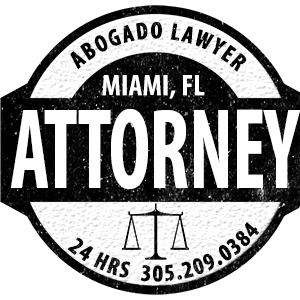 If you or someone you know has recently been arrested in Miami, it's crucial to have a skilled and experienced criminal defense attorney on your side. One of the best choices in the Miami area is Dennis Gonzalez Jr., a highly respected criminal defense attorney with an impressive track record of success. There are many reasons why Dennis Gonzalez Jr. is the ideal choice for anyone facing criminal charges in Miami. First and foremost, he has extensive experience handling complex criminal cases, having represented clients in a wide variety of cases over the years. This experience has given him the knowledge and skills necessary to provide his clients with top-notch representation and achieve the best possible outcomes. In addition to his experience, Dennis Gonzalez Jr. is known for his personal approach to each case. He understands that every client is unique and requires a customized defense strategy. He takes the time to listen to his clients' concerns and goals and works closely with them to develop a personalized plan of action. Another reason why Dennis Gonzalez Jr. is the best choice for anyone facing criminal charges in Miami is his dedication to his clients. He knows that being arrested and charged with a crime is a difficult and stressful experience, and he works tirelessly to ensure that his clients receive the best possible representation and support throughout the entire legal process. Finally, Dennis Gonzalez Jr. is known for his exceptional communication skills. He makes sure to keep his clients informed and up-to-date on the status of their case, answering any questions they may have and providing guidance and support along the way. Overall, if you or someone you know has recently been arrested in Miami, there's no need to look any further than Dennis Gonzalez Jr. With his extensive experience, personal approach, dedication, and communication skills, he is the ideal choice for anyone in need of a skilled and effective criminal defense attorney. |
Dennis Gonzalez Jr.
Miami Criminal Defense Attorney Archives
July 2023
Categories
All
|




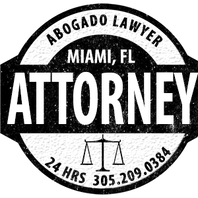

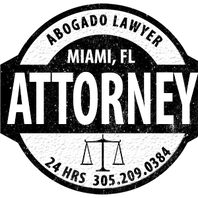

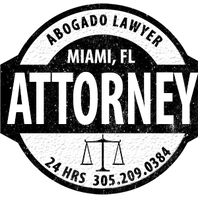

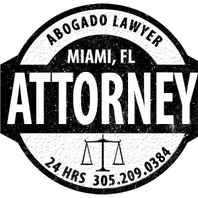

 RSS Feed
RSS Feed